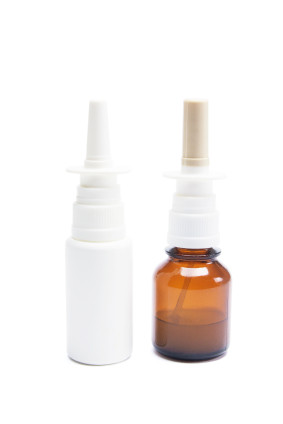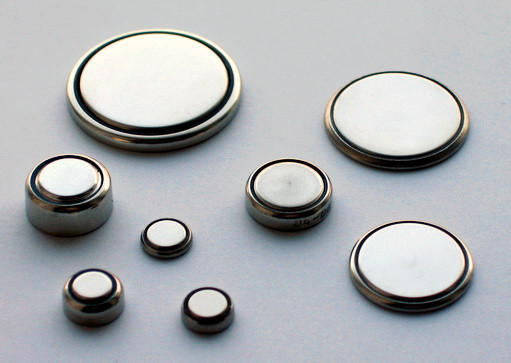Causes Of Burning Inside Nose Sensation
A burning sensation inside the nose is one of the common symptoms that arises for a number of different reasons. We all experience it at some point or the other in life. Usually it occurs in conjunction with other nasal symptoms like a runny nose, sneezing and nasal congestion. The nasal passages are highly sensitive and a burning sensation inside the nose can be quite bothersome. It is often not serious in nature but may at times be a sign of a very serious cause. For example, a child complaining of a burning sensation may have lodged a foreign body within the nose. Identifying the cause and not only focusing on the symptom is therefore important. Treating the causative condition will eventually resolve nasal symptoms.
Inhaled Allergens

Some people are hypersensitive to otherwise harmless substances. This state is known as an allergy and the trigger substances are the allergens. The cause of the condition is not an allergen – it is simply the trigger. An allergic state is a result of an abnormal and exacerbated immune response to these allergens.
A hypersensitivity of the nasal passages is known as allergic rhinitis and it may be seasonal or perennial. It is commonly referred to as hay fever. Some of the common allergens include pollen, spores, airborne cockroach particles, dust, house dust mite and molds. Other irritants like smoke may also trigger a reaction sooner and more violently than it would a person who does not have allergies.
Airborne Irritants
Smoke, toxic gas and minute airborne particles like sand or coal dust are some of the more common environmental irritants that can lead to a burning nose. While some irritants like smoke may have a distinctive odor and can be identified, others may be odorless. Not only can you not see it, but you may not even smell it.
However, your nasal passages will still react – either by sneezing, a runny nose and/or burning inside the nose. While you may expect these irritants to be in the air at obvious places – around a fire, in a workshop and so on – sometimes airborne irritants may be in places you never suspect, like a gas leak within an office building. Your nose burning may therefore be your own gas detector alarm.
Strong Odors

Certain odors may also be airborne irritants that can trigger nasal symptoms in much the same way that other irritants do. Remember that odors are chemicals as well. People who are more sensitive may react faster and more aggressively than others. Strong odors that trigger burning inside the nose may include perfumes and deodorants, air fresheners, detergents and industrial chemicals.
A scent is a result of vaporized chemicals in the air and even if it is pleasant smelling, it can still be an irritant. Many people find that the stronger the odor, irrespective of whether it is pleasant or unpleasant, the more intense the burning. But sometimes even odorless airborne agents can be an irritant and cause burning inside the nose.
Weather And Dry Air
The health of your nasal passages is partly determined by its level of moisture. The mucous membrane linings needed to be relatively moist and mucus is the main way of doing this. While the mucous membranes produces and secretes mucus, there are times when this is insufficient. Weather can play a major role in drying of the nasal passages, particularly when the air is dry. It can occur during extremes of heat and cold. These days indoor climatic control through air conditioning and heating systems can also cause nasal dryness.
Irrespective of the sources, dry nasal membranes may present with a host of symptoms like burning inside the nose, accumulation of dried crusty mucus and even nasal congestion. It may also elicit sneezing and a runny nose. However, it is not only the dryness of the mucous membranes that can be the problem. Changes in weather and dry air may also alter the blood flow to the nasal mucosa which causes a burning sensation inside the nose. This is known as vasomotor rhinitis.
Nasal Sprays And Inhaled Agents

Medicated nasal sprays are used to treat a range of nasal conditions. It contains substances such as antihistamines, decongestants, saline and steroids. Although it is meant to treat a problem or maintain the health of the nasal passages, sometimes a nasal spray can irritate the linings. Burning inside the nose may arise a short while after using a nasal spray. Even stopping a medicated nasal spray may cause nose symptoms – a condition known as rhinitis medicamentosa.
But nasal sprays are not the only inhaled agents used by people. Stimulants such as tobacco and cocaine can be inhaled. Pulverized tobacco for inhaling (snuff) is one of the many ways that people use tobacco. Cocaine is an illicit drug that is most commonly sniffed (snorted) for quick absorption into the bloodstream.
Nasal Infections And Irritation
Inflammation of the nasal mucosa that lines the passages of the nose is known as rhinitis. Some are due to an infection, others due to allergies and sometimes neither. The nasal lining is as prone to infections as any other part of the body. In fact one of the most common viral infections, a cold, is actually an infection of the nasal mucosa. There are range of other nasal infections caused by viruses, bacteria and even fungi.
The term non-allergic non-infectious rhinitis (NAINR) encompasses all types of rhinitis that are neither allergic nor infectious in origin. Many different types of environmental irritants can cause rhinitis and therefore burning inside the nose along with sneezing and a runny nose. Some are caused by uncommon trigger like spicy foods – gustatory rhinitis. Others may be due to hormonal changes in the body.
Foreign Bodies In The Nose

A foreign body in the nose means that an object or substance that should not be in the nose is lodged within the nasal cavity. It is more often seen among infants and small children who place an object in the nose during the course of playing. Sometimes the object is so small and cannot be seen from the exterior. But even small objects can cause irritation of the nasal passages.
Parents need to be cautious about foreign bodies in the nose. Although a burning sensation inside the nose may not be taken seriously, it may be among the first symptoms that arise when there is a foreign body in the nose. There is always a risk that smaller objects can fall through the back of the nasal cavity and cause choking. Some objects like a leaking watch battery that may easily fit in the nose can cause extensive damage within the nasal cavity.
